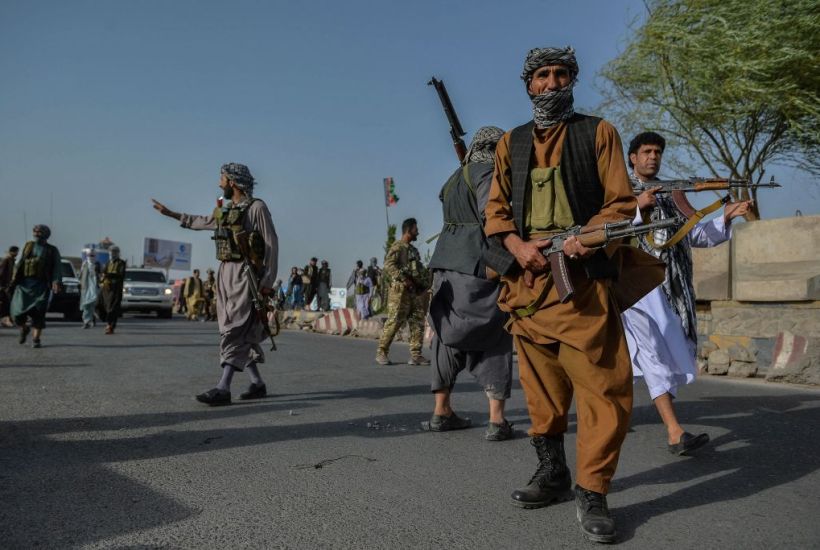This is an age of anger. Social media amplifies rage and exaggerates polarisation. Twitter isn’t Britain, but too many people in politics and journalism spend too much time on the site and – consciously or not – start to mistake its shallow extremes for real public opinion. The result is a public discourse more often driven by fury than understanding.
Just about any question or issue can unleash this lab cultured rage. Some people are angry about being asked to wear a mask to avoid spreading a disease that might kill someone else. Some people are angry about an alpaca.
So where’s the anger about Afghanistan?
Afghanistan, where two decades of Western intervention is ending in bloody failure. Afghanistan, where hundreds of our compatriots died trying to make the world safer and fairer. Afghanistan, where Britain’s claims to be a serious power are dying alongside people we promised to support.
Perhaps my views are skewed by experience. I used to write a lot about defence and made a few trips to Afghanistan over the years, seeing British service personnel on operations. I’m not rosy-eyed about the Afghan mission, which often lacked strategic clarity – and which morphed from counter-insurgency to counter-narcotics and into capacity-building, and sometimes blurred all three. Nor do I romanticise the success or otherwise of that mission – though however imperfect things were in Afghanistan during the intervention, they were still a damn sight better than what’s now underway.
My point here is simply that Britain seems to be largely indifferent to all this. In the late 2000s, the life and death of British personnel in Afghanistan was serious news. It made front pages, tormented Prime Minister Gordon Brown and angered the public. Not too long ago, we got angry about the sort of land rovers allocated to the Afghan mission. Now we couldn’t give a toss that that mission has dwindled into bloodshed, strategic failure and humiliation.
And yes, I know that most of the decision-making here was done in Washington. That raises some more questions about anger. Where’s the British rage at Joe Biden over this? If Donald Trump had overseen this horror show, our keyboard warriors would be frothing.
More importantly, where’s the debate about what America’s Afghan failure says about British influence and clout. Once, a British prime minister would have faced real questions about his or her involvement in a major US foreign policy decision that so directly concerned British interests and operations.
Now, Boris Johnson has no apparent standing with the US administration — UK government sources are effectively arguing that Biden simply imposed the withdrawal decision on his allies — but no one seems to mind or even notice.
Twenty years ago, Tony Blair began an era of intervention alongside the US not just for moral reasons but to maintain British ties to the US. It’s often forgotten now but part of Blair’s case for war in Iraq alongside the US was to avert a situation where an isolated and isolationist US made foreign policy unilaterally.
Blair thought Britain, if not Europe, should always try to have a seat at the table in Washington. Biden’s choice in Afghanistan suggests that ambition is now stone dead. Was it ever the right goal for Britain? I won’t offer a view here. I’ll just say that it’s remarkable that these things are scarcely discussed at Westminster. A Suez moment is passing almost unremarked.
Yes, I know there’s a lot else going on. It’s August and a Covid-tired country just wants a nice quiet summer. But we have enough politicians and journalists who are otherwise ready, willing and able to start angry public debates about all sorts of marginal and third-tier issues even in busy times.
So back to my question: where’s the rage about Afghanistan? Or have we just become a country that only gets angry about the things that don’t really matter?
<//>
Got something to add? Join the discussion and comment below.
Get 10 issues for just $10
Subscribe to The Spectator Australia today for the next 10 magazine issues, plus full online access, for just $10.



















Comments
Don't miss out
Join the conversation with other Spectator Australia readers. Subscribe to leave a comment.
SUBSCRIBEAlready a subscriber? Log in